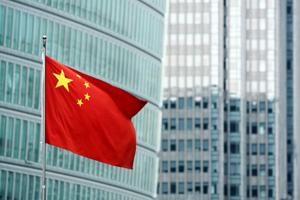The World Trade Organization Strikes Again, Undermines U.S. Law and U.S. Workers!

Once again, a World Trade Organization (WTO) dispute settlement panel has issued a decision that leaves American manufacturers—and those who work for them—behind. In two separate decisions just released (Case DS436, concerning carbon steel from India, and Case DS437, concerning solar panels and 16 other products from China), the WTO ruled that the United States had violated its WTO obligations in the manner that it applied countervailing duties on products from the two countries.
“Countervailing duties” are basically fees applied to particular imported products (like solar panels) when the United States determines that a foreign government is providing unfair subsidies that artificially lower the price of that product. In other words, countervailing duties (also known as CVDs) are intended to level the playing field.
As the U.S. International Trade Commission (USITC) explains:
Under the Tariff Act of 1930, U.S. industries may petition the government for relief from imports that are sold in the United States at less than fair value ("dumped") or which benefit from subsidies provided through foreign government programs. Under the law, the U.S. Department of Commerce determines whether the dumping or subsidizing exists and, if so, the margin of dumping or amount of the subsidy; the USITC determines whether there is material injury or threat of material injury to the domestic industry by reason of the dumped or subsidized imports.
When countries like China or India provide subsidies that are not allowed by the WTO’s rules, and the United States doesn’t provide those same subsidies, the subsidized foreign product will likely outsell the U.S.-made product, causing layoffs, wage cuts and even factory closures. That’s why CVDs are so important. They can work to equalize prices—and, in the best case scenario, countries will be deterred from cheating the system because they know they could face duties that would make the subsidy worthless. (Whether the United States should have agreed to the WTO’s strict rules on subsidies in the first place is a valid question—but not the topic of this post.)
When the WTO makes decisions like the one regarding China—which essentially says that the United States went about determining the CVDs in the wrong way—it keeps the playing field tilted by essentially rewarding China for having an opaque system in which it is difficult to pinpoint subsidies, and even more difficult to tell which “business” decisions are made by the government, which are made by government-controlled companies that compete with U.S. private enterprises, and which decisions (if any) are made independently by Chinese private businesses. The more that some Chinese enterprises are able to benefit from hiding exactly how they might be undermining WTO rules, the more that U.S. workers and their families are hurt. And, the more public support for so-called “free trade” is undermined.
U.S. workers support trade—but only when the rules are fair and enforceable. When the WTO makes it hard for the United States to use its own laws to support its own workers, it is no wonder that it is such an unpopular institution.
The AFL-CIO encourages the U.S. government to promptly appeal these decisions and to do everything it can to enforce our trade laws so that U.S.-based businesses and their workers have an equal opportunity to compete in the global market place.
***
This has been reposted from the AFL-CIO.


